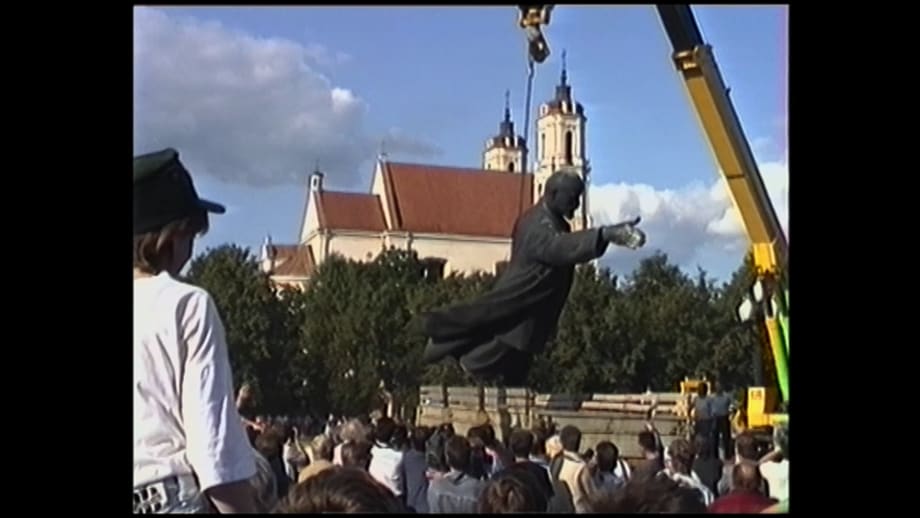Warning Strike: The screening of 'Once in the XX Century' (2004) by Deimantas Narkevičius
Current exhibition
Overview
Deimantas Narkevičius
Once in the XX Century, 2004
16mm film transferred to video
8 min
The film will be screened on repeat from 12 to 4 pm on Sunday, October 5, 2025.
This Sunday, October 5, Galerija VARTAI will open its doors to join the Lithuanian cultural community in a warning strike, contributing to a collective call for competence, respect and responsibility in cultural policy. On this day, we invite all those in support to come together for a screening of Once in the XX Century (2004) by Deimantas Narkevičius. In this piece, the artist reworked archival footage of the removal of the Lenin monument in Vilnius so that it appears to rise rather than fall. By exposing how easily history can be reframed or denied, the work resonates with the troubling political climate of today, where populist rhetoric echoes unsettling fragments of the recent past. Now part of major international collections, including MoMA and the Centre Pompidou, this piece stands as a stark reminder that we must protect culture as a space for critical reflection and dialogue—because this could be the last time…
About the work in the words of the artist:
The thoughts behind the work are not about nostalgia for a former time. In many East European countries (which are undergoing extreme new liberal development of their economies) there are quite large numbers of people who are missing some social ideas, dreams, or even utopias. As the reality of the Soviet Union is becoming alien and forgotten for the majority of East Europeans, the ideas of socialism again become actual and possible to be discussed as an alternative for the extreme new liberalism. For the younger generation, communism is becoming something very exotic. For that generation, it certainly does not have connotations of a state of terror against the individual and an ideology of the colonisation of entire nations. On the other hand, the recent past in the East is denied by the new politicians. Some of them (who originally started their political careers before the changes of the 1990s) have become a type of right-wing populists. Often their rhetoric is somehow reminiscent of some things from the past. So there is something scary about any repetition of the not-so-distant past, even though it seems hardly possible.
Deimantas Narkevičius. Da Capo. Edited by Marco Scotini. Berlin: Archive Books, 2015.


